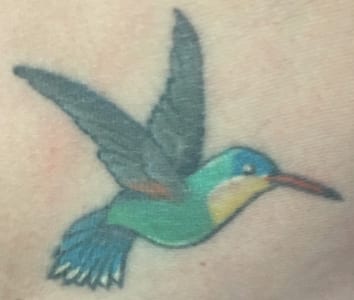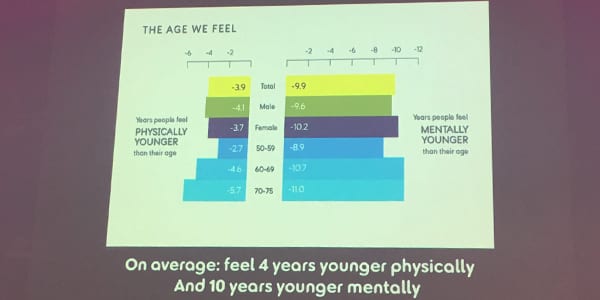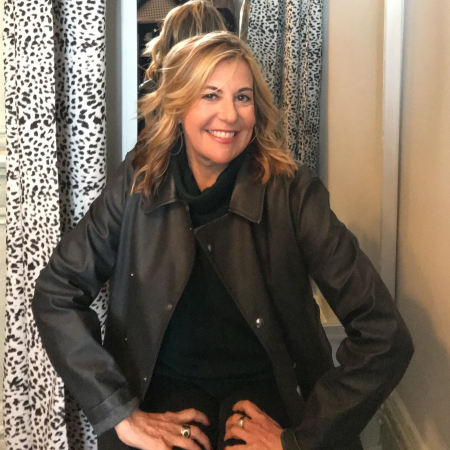 Unsolicited, and only after a little sip of wine, a lovely woman I had just met attending the Mature Marketing Association’s Summit in London last week tugged down her skirt and showed me the newish and rather colorful tattoo on her hip and boasted she was having the best sex of her life. In her 50s, single, joyful and uninhibited, she was completely unfazed that we were among other Summit-goers at a networking event inside a proper English convention center.
Unsolicited, and only after a little sip of wine, a lovely woman I had just met attending the Mature Marketing Association’s Summit in London last week tugged down her skirt and showed me the newish and rather colorful tattoo on her hip and boasted she was having the best sex of her life. In her 50s, single, joyful and uninhibited, she was completely unfazed that we were among other Summit-goers at a networking event inside a proper English convention center.
Like Helen Mirren, who seems to be the marketing world’s default older sultry spokesperson, my new acquaintance is the embodiment of “YOLD,” brilliantly defined by legendary British adman Robin Wight as “young old,” the concept that “we’re all young now, even the old.” In his words, and he’s in his 70s and busy with many business and philanthropic endeavors, “ageism is so last century.”

Research shared by the event’s line-up of 50+ experts validated Wight’s concept of YOLD. Older people today feel four years younger physically and 10 years younger mentally than their biological age, according to a SunLife survey that informed the financial services company’s successful ad campaign.
A survey of middle-aged, European women by the founders of Superhuman, a brand consultancy, revealed that most feel they are in their prime, 84 percent do not define themselves by their age, a majority are more confident now than a decade ago, 78 percent crave new experiences (tattoos qualify), 67 percent have never felt so ambitious (my tattooed Summit acquaintance has just launched a successful, new career), and 63 percent feel very optimistic, all findings that match Ketchum’s research of 50+ Americans.

In America, AARP’s “Disrupt Aging” initiative aims to challenge outdated beliefs so more people can choose how they live as they age. CEO JoAnn Jenkins banned the term “anti-aging” at the recent AARP Services Inc. Summit I attended because the term implies aging is something to oppose or slow. With 15 percent of the US population 65+ today, and projected to be 24 percent by 2060 (I’ll be 100), pro-aging seems the more appropriate adjective.
Still, it’s not a 50+ Summit without reminders that older people still feel invisible in culture, media and society.
Marketing misrepresents us, products don’t meet our needs, or we’re just plain left out.
Notwithstanding the oft-featured faces of aging well — Helen Mirren, Iris Apfel, and now Elon Musk’s mother the Cover Girl — there’s a clear imperative to stop marketing to our ages and simply market to our values and behaviors.
So give us permission to act any age. Show us spending time with people of all ages, not just in 50+ tribes. And give us a tattoo and a boyfriend once in a while.
Karen Strauss and Kelly Kenny shared Ketchum 50+ research in their talk, “Marketing Inclusivity: Making Age Irrelevant” at the Mature Marketing Summit in London.
